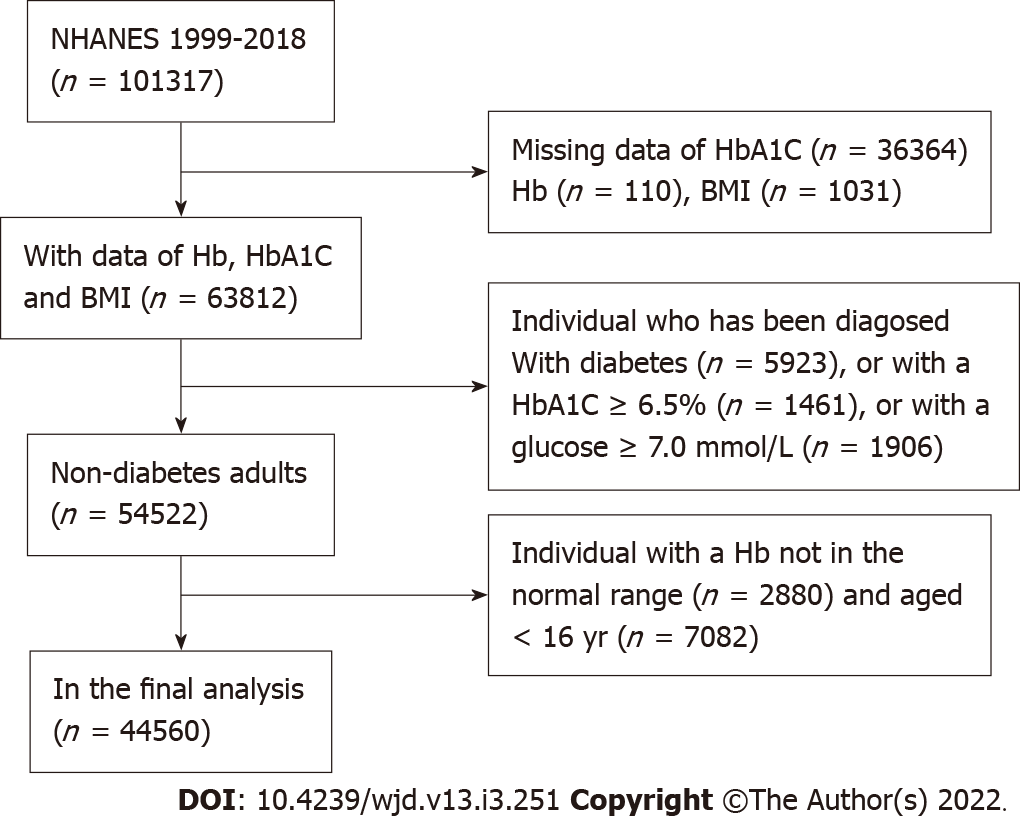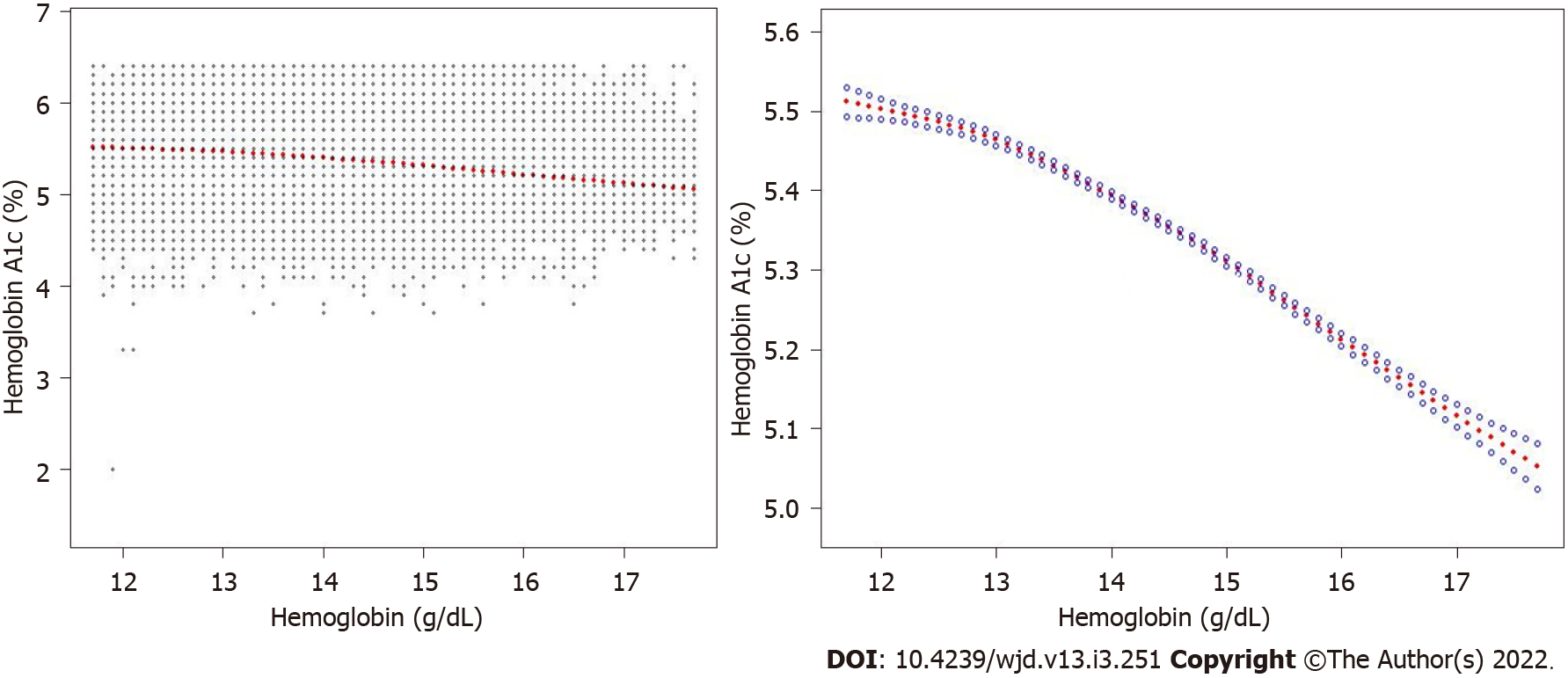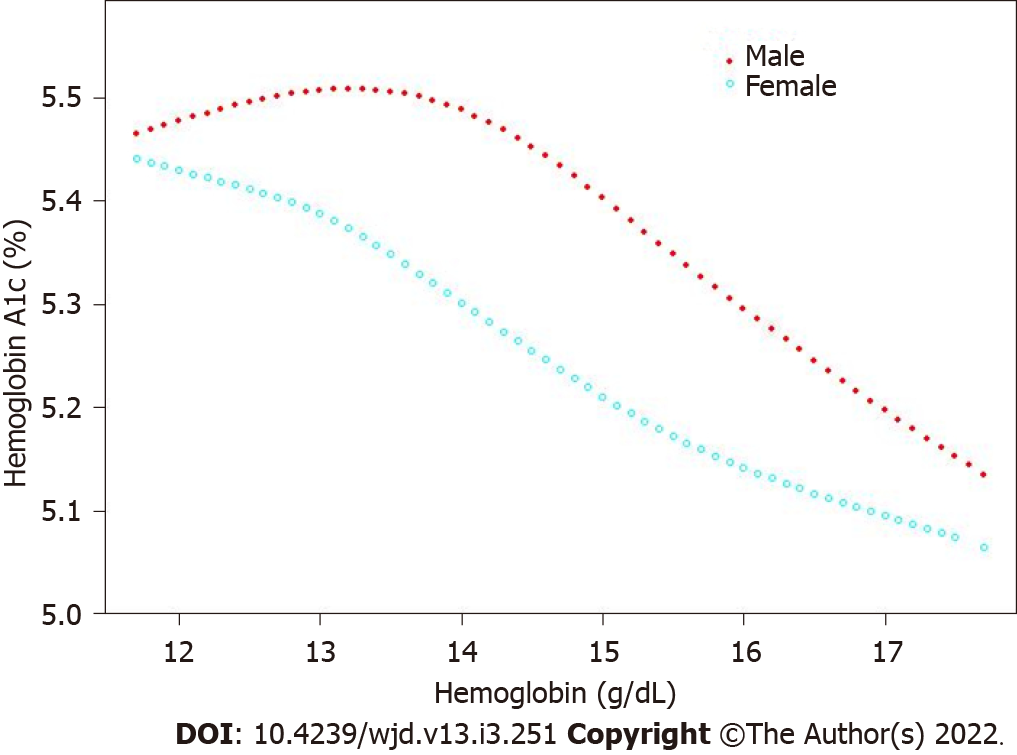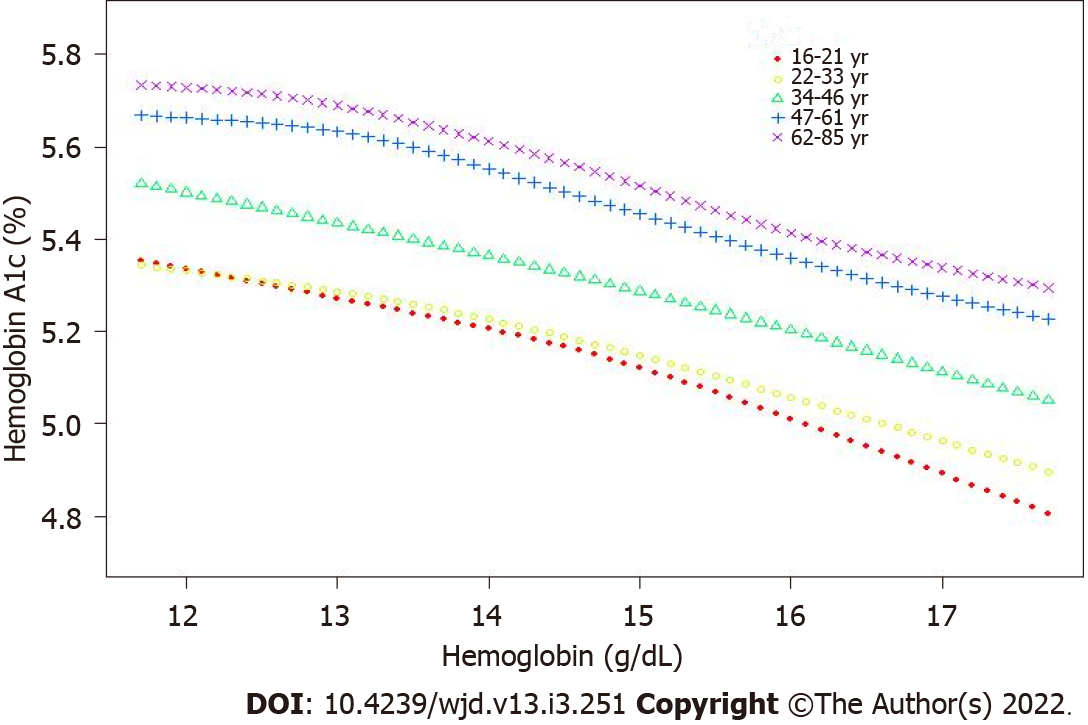Copyright
©The Author(s) 2022.
World J Diabetes. Mar 15, 2022; 13(3): 251-259
Published online Mar 15, 2022. doi: 10.4239/wjd.v13.i3.251
Published online Mar 15, 2022. doi: 10.4239/wjd.v13.i3.251
Figure 1 Flowchart of study participants.
NHANES: National Health and Nutrition Examination Survey; HbA1C: Hemoglobin A1c; BMI: Body mass index.
Figure 2 Relation between hemoglobin and hemoglobin A1c among participants.
Samples are shown in black points and smooth curve fitting data points is represented in solid red line. Besides, the 95%CI is represented in blue band. All parameters were modified, including age, gender, ethnicity, educational level, marital status, blood glucose, smoke behavior, body mass index, uric acid, total protein, alanine aminotransferase, cholesterol, serum creatinine, platelet count, and red/white blood cell count.
Figure 3 Sex-stratified analysis of correlation for hemoglobin and hemoglobin A1c.
All parameters were regulated, including age, ethnicity, educational level, marital status, blood glucose, smoking behavior, body mass index, uric acid, total protein, alanine aminotransferase, cholesterol, serum creatinine, platelet count and red/white blood cell count.
Figure 4 Age-stratified analysis of correlation for hemoglobin and hemoglobin A1c in five groups.
All parameters were adjusted, including sex, race, educational level, marital status, blood glucose, smoking behavior, body mass index, uric acid, total protein, alanine aminotransferase, cholesterol, serum creatinine, platelet count, and red/white blood cell count.
- Citation: Bai XF, Wang H, Zhao QL. Hemoglobin within normal range is negatively related to hemoglobin A1c in a nondiabetic American population aged 16 years and older. World J Diabetes 2022; 13(3): 251-259
- URL: https://www.wjgnet.com/1948-9358/full/v13/i3/251.htm
- DOI: https://dx.doi.org/10.4239/wjd.v13.i3.251












